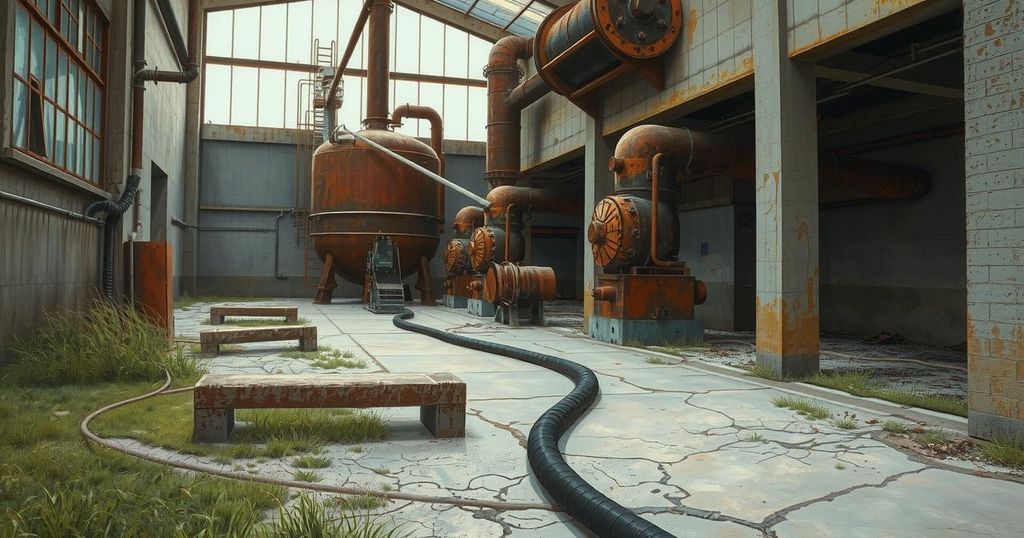Conflict in Eastern Congo: Heineken Brewery Closure Sparks Economic Crisis

The ongoing conflict in eastern Congo has led to the closure of the Heineken-owned Bralima brewery in Bukavu, severely impacting local businesses. Bar owner Adolphe Amani faces imminent closure due to dwindling supplies and mounting expenses. The conflict, fueled by Tutsi-led M23 rebels, has caused prices for essential goods to rise, with broader economic implications threatening livelihoods and public health.
In Bukavu, Democratic Republic of Congo, Adolphe Amani, a local bar owner, is grappling with the impact of the recently shuttered Heineken-owned Bralima brewery. As his beer stock dwindles, he anticipates having to close his establishment within a week due to the inability to cover essential expenses. “We cannot hold out any longer,” Amani remarked, highlighting his struggle to keep his business afloat amidst the conflict.
The conflict has escalated with the Tutsi-led M23 rebels capturing significant territory, including the strategic city of Goma and now Bukavu, with allegations of support from Rwanda. This surge in violence has provoked international condemnation and sanctions against Rwanda, which denies the accusations. The ongoing instability has severely affected businesses and residents, compounding economic distress as prices for basic goods soar.
Residents like Merci Kalimbiro describe the paralysing effect of the conflict, stating, “We can no longer access our fields or our bank accounts. The economy is blocked and paralyzed.” The violence has led to looting, leaving local businesses precariously positioned as they assess the damage and adjust to the dire economic climate.
Heineken’s facilities, particularly in Bukavu, were not spared, with reports of looting and damage to production areas. A representative from Heineken acknowledged the need for stability, asserting that businesses require a resolution to the conflict to recover. The suspension of operations in Goma, Bukavu, and Uvira is expected to have a significant ripple effect on the company’s revenue in the region, which constitutes nearly 14% of Heineken’s total earnings.
As the crisis unfolds, nearly 1,000 employees are directly or indirectly affected by the brewery’s closure. Amani has had to furlough over 30 staff members from his bar and hotel due to the insufficient supply of beer. Additionally, REGIDESO, the state water utility, faces critical challenges with the loss of revenues related to Bralima’s operations, risking a potential halt in water purification processes, which could lead to a public health crisis.
In the face of adversity, some bar owners consider sourcing beer from Rwanda or Burundi, where Heineken maintains business operations. However, Amani has chosen to remain loyal to local products, stating, “I cannot consume products that come from Rwanda. They are our enemy.” This demonstrates the ongoing complexities of local sentiment amidst economic hardship.
The closure of Heineken’s Bralima brewery in Bukavu due to escalating conflict with M23 rebels has profound implications for local businesses and the economy. Bar owners like Amani face immediate financial crises, while the larger economic landscape in eastern Congo suffers from skyrocketing prices and a lack of essential goods. With potential public health risks looming from disrupted water services, the resolution of this conflict is paramount for restoring economic stability and ensuring public welfare in the region.
Original Source: www.straitstimes.com








